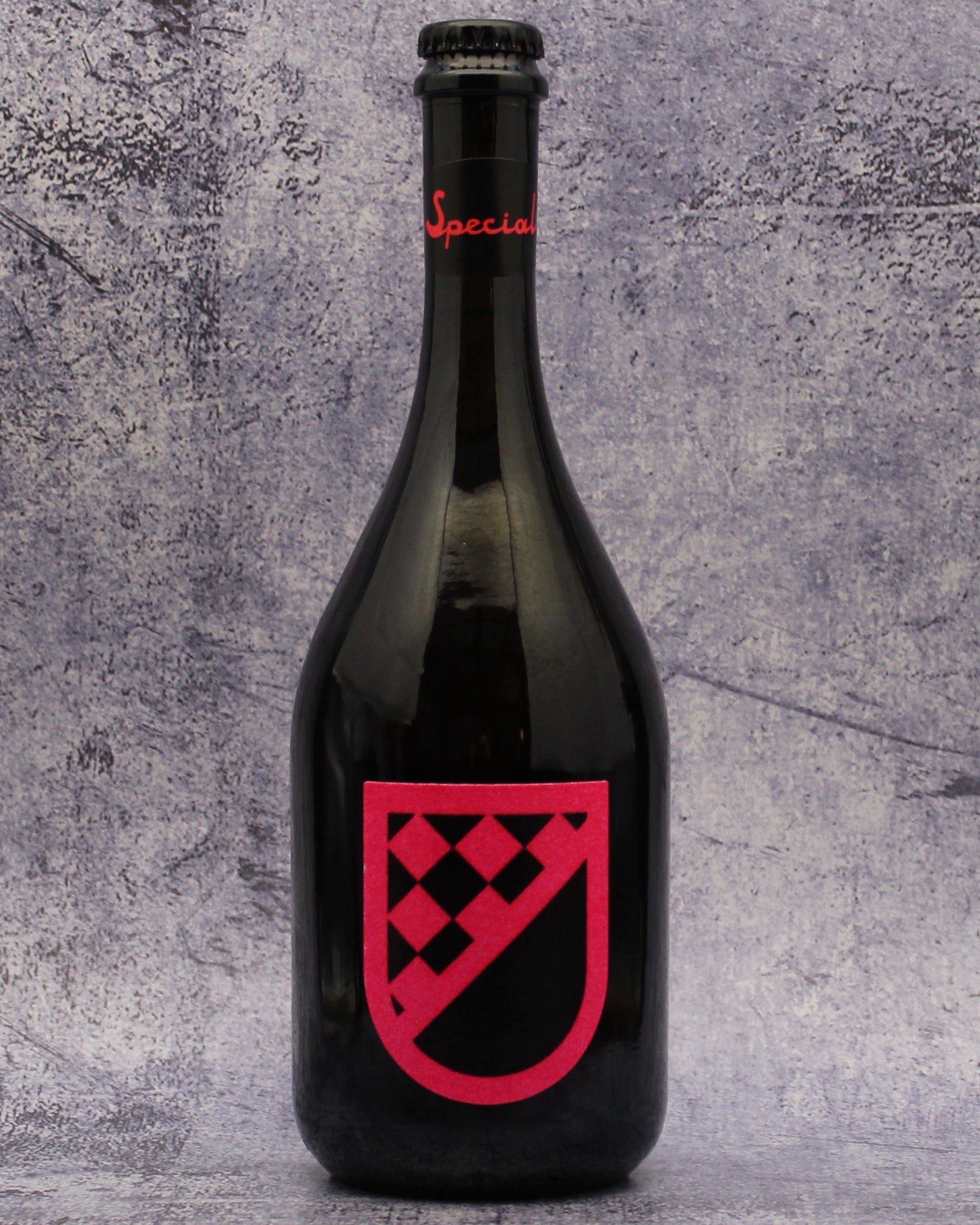Description
From: Castelli di Jesi, Marche, Italy
Varietal: Lacrima di Morro
Taste: The wine presents a delicate, shimmering pink hue, with subtle coppery highlights. A fine, persistent bead of bubbles .The texture is light and effervescent, offering a creamy mousse on the palate while maintaining a refreshing crispness. The natural sediment from the non-disgorged method adds a slight rusticity, lending depth and character to its tactile feel.
On the nose, the wine is aromatically intense, displaying signature notes of the Lacrima grape, such as rose petals, violet, and wild berries. Secondary aromas include hints of pomegranate, red currant, and delicate herbs, with subtle yeast-driven nuances of freshly baked bread.
The palate is vibrant and lively, showcasing raspberry, cranberry, and blood orange flavors, with an undercurrent of floral complexity. A touch of minerality adds freshness, while the finish is long, crisp, and slightly savory, punctuated by a subtle hint of spice and wild herbs. The absence of malolactic fermentation ensures the wine retains a bright, zesty acidity, making it exceptionally refreshing and food-friendly.
Pairing: Its bright red berry and floral notes shine alongside smoked salmon crostini topped with crème fraîche and dill, offering a harmonious balance of richness and freshness. For a lighter option, try it with a fresh Caprese salad of heirloom tomatoes, mozzarella, and basil, where the wine's crispness complements the creaminess of the cheese and the acidity of the tomatoes. Its crisp profile makes it an excellent match for shrimp tempura with a light soy dipping sauce, cutting through the batter's crunch and enhancing the umami flavors. For a Mediterranean twist, pair it with grilled lamb skewers marinated in rosemary and garlic, as the wine's subtle herbal undertones play beautifully with the charred, savory meat. Lastly, its lively fruit and acidity make it a delightful companion to Creamed-Mushroom Bruschetta with Caramelized Onions. The wine's vibrant acidity and delicate effervescence cut through the creamy richness of the mushrooms, providing balance and preventing the dish from feeling too heavy on the palate.
This wine works exceptionally well with American holiday fare because its vibrant acidity and effervescence provide a refreshing counterbalance to the rich and savory dishes often served during festive meals. The sparkling nature of the wine cuts through fats and heavier textures, cleansing the palate and making each bite feel fresh. Its red berry and floral notes enhance both the savory and subtly sweet elements commonly found in holiday spreads, while its crisp, dry finish prevents it from overwhelming delicate flavors. Additionally, the wine's natural liveliness complements the celebratory atmosphere, making it as fitting for toasts as it is for pairing with a wide variety of holiday dishes.
Creamed-Mushroom Bruschetta With Caramelized Onions
Recipe from Chris Pandel
Adapted by Sam Sifton
About. The story of Luchetti Winery begins with a vision that has been passed down through generations. Giovanni Luchetti founded the winery in the early 20th century as a small, family-run vineyard focused on cultivating local grape varieties. Giovanni, a man influenced by the land, understood the potential of the Marche region, particularly the Castelli di Jesi area, which boasts a rich history of wine production dating back to Roman times.
Wine Notes: The Mario Luchetti Spumante Rosé is crafted exclusively from 100% Lacrima grapes, grown in vineyards with southeast exposure at 180-220 meters (590-755 feet) above sea level. The soil is of medium density with a clay-rich composition, supporting the 15-year-old vines trained in the Guyot system at 3,500 vines per hectare (8,645 vines per acre). With a yield of 9,000 kg per hectare, the grapes are hand-harvested in early September to preserve optimal freshness and aromatic complexity. After gently pressing whole grapes, fermentation occurs under temperature control in stainless steel tanks. The secondary fermentation, executed in the bottle without disgorgement, occurs during the spring season, retaining natural sediment and adding a rustic, artisanal quality. Malolactic fermentation is avoided, preserving vibrant acidity, and the wine ages for six months in the bottle before release, achieving a refined balance of texture and freshness.

